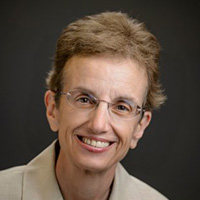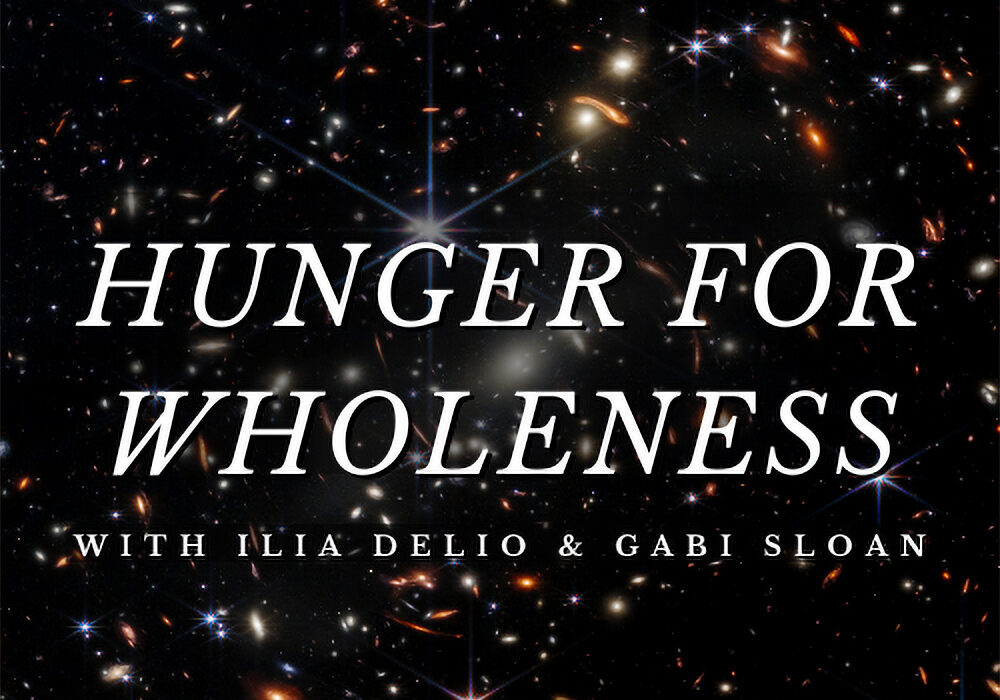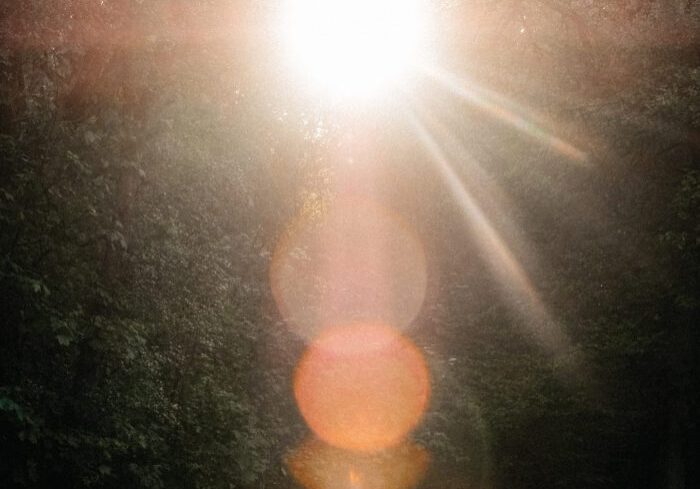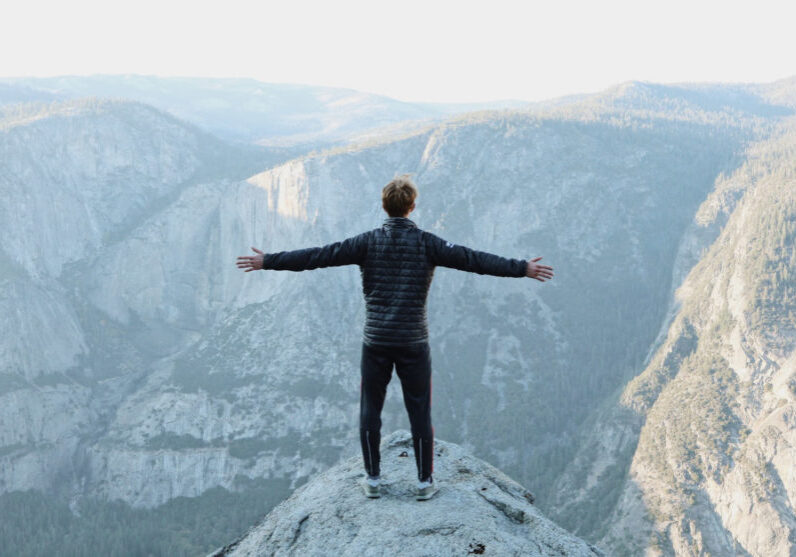Immigration, Evolution, and Wholeness
Q: What does Ilia think about Teilhard in regard to the emerging and pressing phenomenon of white-nationalism?
What does she think about the “send-her-back” mentality of the insurgent movement?
 Ilia: The questions this week seek my Teilhardian perspective on the current political climate marked by white nationalism, racism, and xenophobia, which is defined as deep-rooted fear towards foreigners. Pace the slanderous articles by John Slattery which portray Teilhard as a racist and white nationalist, Teilhard’s ideas are ultimately focused on cosmotheandric wholeness.
Ilia: The questions this week seek my Teilhardian perspective on the current political climate marked by white nationalism, racism, and xenophobia, which is defined as deep-rooted fear towards foreigners. Pace the slanderous articles by John Slattery which portray Teilhard as a racist and white nationalist, Teilhard’s ideas are ultimately focused on cosmotheandric wholeness.
Teilhard was an evolutionary thinker and the dynamic direction of evolution, in his view, is toward wholeness and unity. Evolution is essentially a process of increasing consciousness which deepens with physical complexity. Of course, everyone associates evolution with Darwin who gave us some mechanisms such as natural selection and survival of the fittest to account for biological diversity and adaptation. But evolution is more than survival of nature; it is the openness of nature to novelty, creativity, and new levels of consciousness. Given enough time and the right conditions, nature enjoys doing new things.
We need to dispel the idea that evolution is only a theory. Since the 18th century, evolution has been the best description of how life on earth unfolds, including human life. We are not here by a divine fiat nor are we miraculously conceived. We emerge out of a long process of biological life. Humans, like mammals, have existed on earth for a relatively short time, only about 0.04% of the earth’s existence (0.04% of 4.5 billion). The oldest known fossil attributed to our genus, Homo, dates to about 2.8 million years ago and was recently reported.1 The modern human physique first appeared in Africa about 150,000 years ago, and then spread into the rest of the Old World, replacing existing populations of archaic human forms.2
The species Australopithecus afarensiswas discovered in the Hadar region of Ethiopia in 1973 by Donald Johanson of Arizona State University. As the skeleton was being pieced together it turned out to be that of a young woman which Johanson called Lucy. Her pelvic structure showed upright posture and her teeth were distinctively human and dates as far back as 3.5 million years ago.3 A slightly more evolved form was discovered with the bones of Australopithecus africanus which had a more human-like cranium, a slightly larger brain and more humanoid facial features. This discovery was made in South Africa and dated between 2 and 3 million years ago. Evidence for bipedalism could be traced back to Toumain, about 7 million years ago, which means walking characterized not only the Homo genus but the Australopithicus as well.4 The bipedal species Homo erectus was more proficient at toolmaking since this species was tied closely with the earth, drawing nourishment from natural foods and grasses. They used natural resources for shelter, and may have built rafts and traveled by sea, although this claim is still controversial.5 The oldest tool-manufacturing culture known to humans dates back to 2.6 million years, first excavated in the Gona and Omo basins in Ethiopia.
There is much more that can be said here but the evidence is clear that our human roots began in Africa. Every white nationalist likely descends from a distant ancestor in Africa. Even the species Homo Neanderthalis which predominated in Europe had its origins in Africa. Our own species Homo sapiens was contemporary with Neanderthals and likely shared the same common African ancestors. Homo sapiens probably developed in the Horn of Africa between 300,000 and 200,000 years ago. The “recent African origin” model proposes that all modern non-African populations are substantially descended from populations of Homo sapiens that left Africa after that time. The predominant paradigm today is that Africa is the original birthplace of the human species so that every person whether black, white, Asian or Hispanic is somehow rooted in Africa.
Second, migration waves took place over thousands of years. There were at least several “out-of-Africa” dispersals of modern humans, possibly beginning as early as 270,000 years ago, including 215,000 years ago to Greece and certainly via northern Africa about 130,000 to 115,000 years ago. The most significant “recent” wave took place about 60,000–70,000 years ago, via the so-called “Southern Route” spreading rapidly along the coast of Asia and reaching Australia by around 65,000–50,000 years ago, while Europe was populated by an early offshoot which settled the Near East and Europe less than 55,000 years ago. There is no continent of land that was divinely ordained. Land was occupied by migrations of peoples who settled into communities. Migration is part of evolution’s impulse toward flourishing life. When the environmental conditions become harsh or inhospitable due to tribal wars, natural disasters or climate change or when resources become scarce, migration of peoples take place. Today, the internet is speeding up the migration process as information abounds globally, even in poorer areas of the world. Information affords new levels of consciousness so that there is greater awareness of other opportunities for developing life.
The United States is an evolutionary melting pot. The Puritans migrated here from Holland after escaping religious persecution in England. However, Holland proved to be too liberal for their religious tastes and a hard place to make a living; hence the Puritans migrated to America and settled down, only to be followed eventually by other Europeans escaping war and harsh conditions. At the turn of the 20th century, Irish, German, Italian, Polish, Slovak and many other immigrants lined up at the Statue of Liberty seeking a new home in a new land. My grandparents were among them and coming to America was very difficult. Italian Americans were denigrated and feared, especially because they were associated with gangs (read, Mafia), in the same way Germans were associated with the Nazis. Language barriers formed ghettos and warring neighborhoods were common. It is amazing that all these “foreigners” who assimilated to U.S. soil and established themselves now claim the land as their own. Assimilated foreigners are called US citizens and it hard to reconcile their rejection of younger generations from the South who are now following the same trajectory.
The current political milieu of border control, immigrant detention camps and white xenophobic nationalism is outrageous and shows complete ignorance of the dynamics of evolution. Moreover, these political efforts of containment militate against basic religious principles [Jewish, Christian, Muslim, Buddhist, Hindu, etc.] of care, compassion and mercy. To abuse, mistreat and denigrate the human person in the name of national security is nothing less than a sin against God: “Whatsoever you do for the least of my brothers and sisters, you do unto me” (Matt 25:40). The Christian must stand on the side of the crucified and even if one is not Christian our basic humanity must unite us. Science tells us today interconnectedness is our deepest reality; hence to renounce this reality is to go against nature, and to reject nature invites the rebellion of nature.
Teilhard did not view evolution with a naïve realism but was acutely aware of internal forces that could thwart the direction of evolution toward the fullness of love or cosmotheandric solidarity. In an article on “The Directions and Conditions of the Future” he had begun to worry not so much about the human race blowing itself up or a pandemic disease wiping out all human life but the problem of enough food to properly feed the world’s exploding population, which he then predicted would reach 2.5 billion within the next quarter century or so (it is now around 7.7 billion).6 He was concerned whether or not an expanding population would be able to live amiably and in peace with each other under conditions which he no longer described as “convergence” but “external compression.”7 He saw the choice to be between political totalitarianism or some new breakthrough into a new state of human unanimization,” the emergence of an “ultra-humanity.”8 The forces of evolution are such that we are in the direction of a new global human community. The boundaries which define land and culture are gradually disappearing and giving way to new boundaries that embrace racial, cultural and linguistic complexities. What Teilhard said is that this evolutionary breakthrough to a level of ultra-humanity can take place either cooperatively or through suffering and destruction.
Today we are witnessing the mass migration of peoples from areas of the world that lack basic critical resources such as water, or war-torn areas where gang violence abounds. We are in a new period of evolutionary convergence and we have two choices, either find ways to come together on new levels of existence (ultra-humanity) or succumb to the totalitarian control of oligarchies and dictators. Nationalism is a distortion of nature’s impulse to converge, and resistance to this impulse is bound to incur disaster. After all, no one really “owns” land—nothing ultimately belongs to anyone. The monetary possession of land is an illusion of power. When a person dies, s/he cannot take their “land” with them; rather they will return to the land and someone else will build on their ashes. The only thing that remains in cosmic life is personal wholeness and the memory of that wholeness shared in love.
Teilhard did not see evolution as a forward movement without resistance. The forces of history acting on humanity must either cause us to complexify and evolve or force humanity to weaken. The evolutionary vigor of humankind, he indicated, can wither if we should lose our impulse, or worse, develop a distaste for ever-increased growth in complexity–consciousness. The danger he worried about most was that humanity would lose its “Zest for Living.” If we are only seeking to survive, he said, then we are in a closed system that will wear down.
Today we are losing our zest for living and have shifted to survival mode. Nationalism is a fight or flight syndrome born out of deep fear that we shall lose everything if we do not guard our borders. Our daily newsfeeds deepen our fears, and fear is a perfect breeding ground for dictators and oligarchs. We want someone to save us and protect us from the enemy. But the enemy is within, living in a heart full of fear. Today everyone is in fear: the rich are in fear, the poor are in fear, Muslims are in fear, people of color are in fear; children are in fear, but fear cannot bind us together because it alienates us from our deepest selves.
Yet there is something clever about creating a culture of fear. It takes a political genius to orchestrate a deep collective fear that gives rise to a type of paranoid schizophrenic condition where we hear voices tell us, “they are Muslim, be careful” or “that black man may have a gun, beware.” We are like patients in a mental hospital lacking proper treatment, crumbling under the weight of fear and shriveling in a corner of self-protection. We are in need of a good doctor who can make us great again. To play on human fear and distrust is to play God in a world stripped of God. “God is dead,” Frederick Nietzsche announced, “and we have killed him. Hence we shall have to make ourselves greater than God if we are to live in a world without God.”
Teilhard was clear that religion has done us a disservice by alienating us from the principles of evolution. Religious fundamentalists adhere to a father-figure God in a fixed creation now threatened by foreigners. They use Scripture as a tool to justify deep-seated hate and fear. This type of fictitious thinking is no different from saying that the President is an extraterrestrial. Genesis is clear: God and creation are unified. One God, one creation in one deep and ongoing relationship. What evolution adds to this relationship is its character. Nature is dynamic and in movement; a dynamically evolving nature tells us something about God.
Teilhard indicated that in an evolutive world, God is conceivable only within the context of evolution, since evolution is no longer a mere hypothesis, he states, but now dominates the whole of our experience. While in the case of a static world, the God is structurally independent of his work–in the case of an evolutive world, the contrary is true. God is not conceivable except in so far as he coincides with evolution but without being lost cosmogenesis. Evolution is moved by God toward God. There is an impulse in nature toward wholeness, unity, love, peace and justice because there is an ineffable power within nature that is more than nature, a power that is divine.
Teilhard thought that creation is integral to God. Without creation, something would be absolutely lacking to God, considered in the fullness not of his being but of his act of union. In short what we do on this earth makes a difference to God. Our political decisions make a difference to God; our incarceration of innocent peoples makes a difference to God; our acceptance or rejection of people who differ in race, gender or religion makes a difference to God. In every choice we make, we either enhance God’s presence so that God becomes more God, or we abort the birth of God and substitute ourselves as gods. Where there is God there is life, movement, incarnation, becoming, convergence, unity and new relationships. Where there is no God there is fixity, resistance, domination, fear, distrust and rebellion. Our political situation today is a good litmus test of just how out of touch religion is with a God in evolution.
Because of the great disconnect between religion and evolution, we are a people headed toward extinction. If we can wake up to Teilhard’s vision and realize that God is in our midst—God is in the foreigner, the Muslim woman, the immigrant, the Asian, the Russian, the African, but also in the sunflower, the turtle, the poppy field, the clouds and the rain—we would have nothing to fear because the power that creates us is with us and goes before us: “I am with you always” (Matt 28:20).
Teilhard sought to bring faith and science together so that we could become conscious of God as the power of divine love pushing through our frail humanity to become something new in us. If we could trust this power of love in our midst and not the fake newsfeeds that control our minds and distort our vision—then we could begin to build new communities toward more flourishing life. After all, eye has not seen nor ear has heard what God is doing for those who live in love.
Omega Challenge
- Social activists challenge the deplorable conditions at the border, the incarceration of children and the rejection of poor immigrants. How can we turn anger and resistance into new creative relationships of love?
- If we accept that we are in evolution and that movement toward new types of relationships is part of the convergence process, how might we orient our lives toward new social communities?
- What is your greatest fear given the current political climate?
Notes
1. A’ndrea Elyse Messer, “Earliest known fossil of the genus Homo dates to 2.8 to 2.75 million years ago” Penn State News March 4, 2015. https://news.psu.edu/story/347308/2015/03/04/research/earliest-known-fossil-genus-homo-dates-28-275-million-years-ago.
2. Denis Edwards, Ecology at the Heart of Faith: the Change of the Heart that Leads to A New Way of Living on Earth (Maryknoll, New York: Orbis Books, 2006), 12–13.
3. Donald Johanson, From Lucy to Language (New York: Simon and Schuster, 2006). See www.becominghuman.org.
4. Diarmuid O’Murchu, Ancestral Grace: Meeting God in Our Human Story (Maryknoll, New York: Orbis Books, 2008), 39.
5. Bruce Bower, “Ancient Hominids May Have Been Seafarers,” Science News Jan. 8, 2010. https://www.sciencenews.org/article/ancient-hominids-may-have-been-seafarers
6. Ibid., 232-34. According to a 1955 UN (United Nations Department of Economic and Social Affairs, 2009) report, the world’s population had already reached 2.76 billion; by 1970 (two years short of the quarter century of Teilhard’s 2.5 billion prediction) it was 3.69 billion.
7. Pierre Teilhard de Chardin, The Future of Man, trans. Norman Denny (New York: Harper & Row,1964), 235
8. Teilhard, Future of Man, 270-80.
Image Credit: ©Tomas Castelazo, www.tomascastelazo.com / Wikimedia Commons / CC BY-SA 4.0. “Mexico–United States barrier at the border of Tijuana, Mexico and San Diego, USA. The crosses represent migrants who died in the crossing attempt. Some identified, some not. Surveillance tower in the background.”
 View print-friendly version
View print-friendly version
4 Comments
Related Posts

Hunger for Wholeness Podcast Launches!
Story matters. Our lives are shaped around immersive, powerful stories that thrive at the heart of our religious traditions, scientific inquiries, and cultural landscapes. All stories – big and small…


James Alison, through his application of sociologist Rene Girard’s mimetic theory of human behaviour to the meaning of the intervention of God into human history in the person of Jesus provides an insight of hope for the human race through its redemption from violence and dualistic mindsets, if only we will truly follow him. The invitation of the Christ to follow him does not necessarily mean merely becoming ‘religious’. It means returning to the depth of spirituality. Jesus, says Alison, offers us his own spirit which he realised through himself becoming a victim, and dying – but rising again. We should not wait around hoping for God to change our world. We humans are the ones to change it: ‘Blessed are the poor, the meek, the suffering ..’ But we can only do this from an inner source of peace and compassion – exactly the gifts which Jesus provides freely to those open to receive his Spirit and his own intelligence – what Alison describes as the ‘Intelligence of the Victim.’ He was without revenge, without enmity, without retribution even after his own lynching. He shared these profound and contemplative values with all the great spiritual teachers of human history. Only this contemplative intelligence can take away the sin of the world. God is not dead, only our mistaken understanding of God.
Need to ponder this some more. Don’t think Craigus’s [re: comment removed] interpretation is quite “on”, or we’d have done nothing during Fascism of WWII as well. But need to ponder his comments a bit more.
Here’s the quote from article I want to contemplate “In every choice we make, we either enhance God’s presence so that God becomes more God, or we abort the birth of God and substitute ourselves as gods. Where there is God there is life, movement, incarnation, becoming, convergence, unity and new relationships. Where there is no God there is fixity, resistance, domination, fear, distrust and rebellion.”
Contemplation informs my actions—and they’ve been of resisting the current rise of Fascist actions. I think such activism is vital pushback to a powerful oligarchic takeover of our country and its leadership.
Such a takeover inspires a collective pushback/re-action. Everything that occurs is not necessarily “natural” and to be accepted as part of an intended harmoniousness. That is passivity in the face of cancer, rather than suffering the chemo treatments and their aftermath of painful side effects,
Without such activism as justice-seeking, there is no “life, movement, incarnation, becoming, convergence, unity and new relationships”… only passivity.
Perseverance is fueled by beliefs of such justice-seeking for a healthier and healthier state of being. Don’t “Nuns of the Bus” speak to this action informed by contemplation?
Ilia, thank you once again for anchoring us in what is true and good and calling that forth! Your wisdom in this one line is a vision for us all: “Where there is God there is life, movement, incarnation, becoming, convergence, unity and new relationships.” May our thoughts, emotions and actions focus there and rather than on fear and may our lives deepen the consciousness that ALL IS ONE.
A wonderful piece of writing and articulation of the current state of the world. And the questions so pertinent. How to I relate to this and engage with others in fellowship and welcome and the creation of new communities?